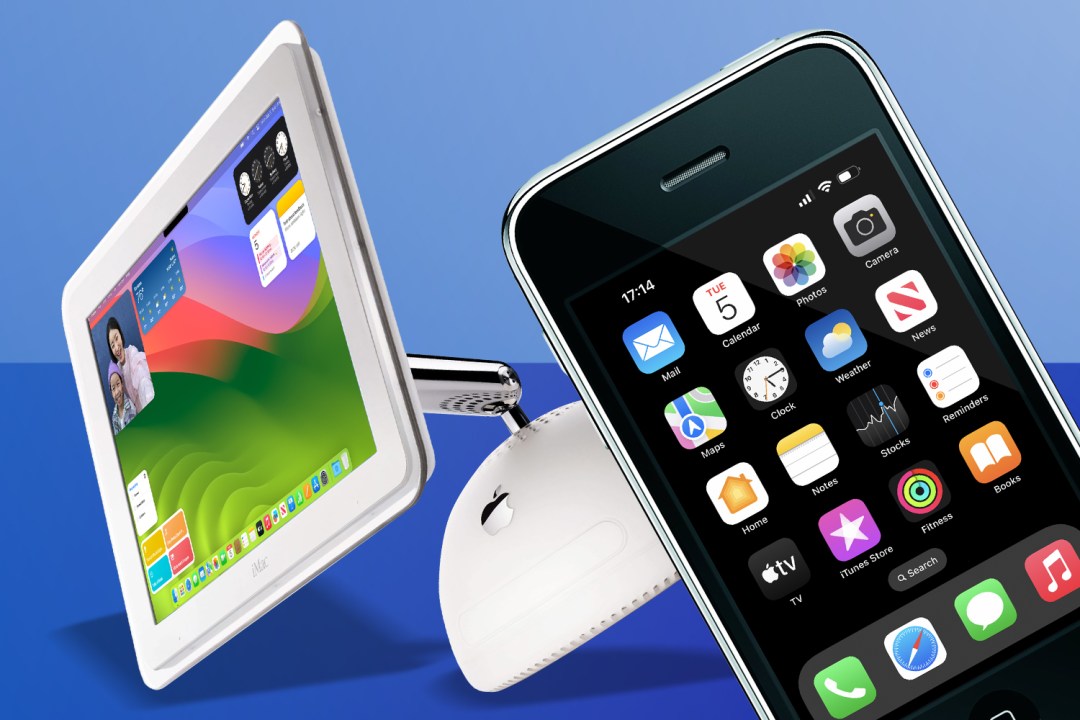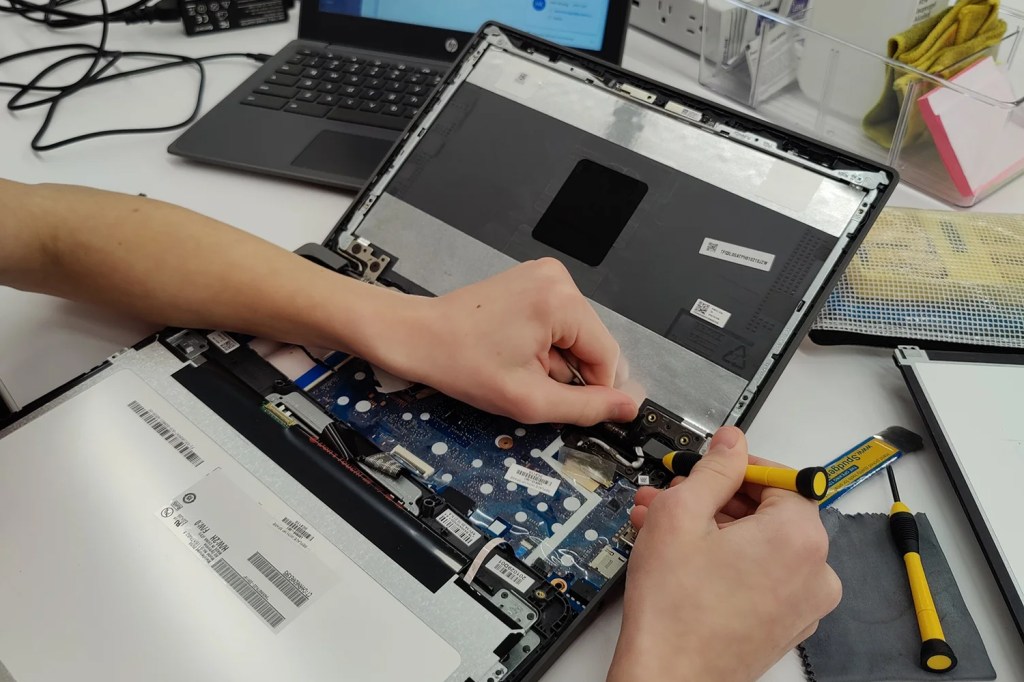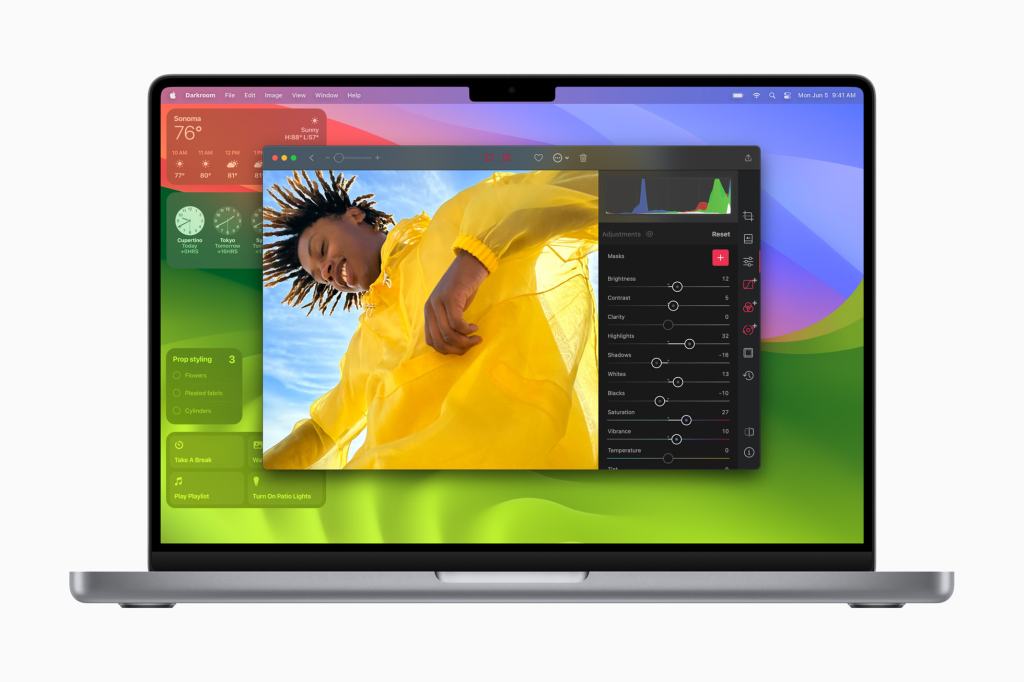How will Apple respond to Google’s ten-year Chromebook update pledge?
Green promises and recycling are not enough – we need devices that last much longer

You’re killing the planet. Sorry to start on a downer, but it’s true. I’m killing the planet too. We all are. And we’ve only got one, which is under immense strain. A big stressor is tech. It’s responsible for a fraction of the world’s waste by volume, but to blame for a huge amount of harmful environmental impact. And although you might be sick of this subject, I’m going to talk about it this week, because I sat through Apple’s environmental sketch during its September event and now you must suffer too.
First, though, I’m going to talk about Google. Plot twist! I am M. Night Shyamalan. Hear me roar! But the reason I’m starting with Google is because it recently revealed a plot twist of its own. Various companies play up their green credentials, but few say anything meaningful regarding device longevity. We hear many claims about recycled materials in new devices, but not that devices should be designed to last a whole lot longer.
On mobile, Apple has been an outlier. That’s because it automatically updates phones with a new OS for several years after purchase, rather than forever lumbering you with what came pre-installed. (Some Android folks are now doing better.) But on desktop, Google has now laid down the gauntlet, promising to update Chromebooks for ten years. An entire decade.
Polishing Chrome

Google didn’t reach this position out of the goodness of its own heart. Remember the company’s former motto ‘Don’t be evil’ was really ‘Be evil if you can get away with it – mwahahahahaha’. Probably. In any case, it’s an industry giant that often only does the right thing when pushed. This time, it was pushed by an awful lot of people in the US education sector. Understandably, they’d started to become miffed that Chromebooks had a built-in expiry date as little as four years from the date of purchase. The laptop equivalent of canned fruit.
The ideal was more ambitious: a child should get a Chromebook when first entering school and use it until they leave. But regular replacements became the norm, because reasons. Reasons relating to money. Parents, teachers and non-profits demanded change. They wanted Chromebooks to last longer. There were calls to make repairs simpler and more affordable. And when these devices reach the end of a longer life, there were demands they be more thoroughly recycled.
So: Google announced a ten-year Chromebook update pledge. And other goodies, such as pushing partners to build more efficient devices and ramping up battery preservation in the operating system. The document even notes being able to “reduce or turn off energy-intensive processes”. Which, given what Chrome has done to every Mac and PC I’ve used it on, should be interesting on a system based around Chrome. Anyway.
Mac to the future

Apple should take note. Although it’s better than rivals in the mobile space, its now surprisingly aggressive regarding system requirements for macOS. Sonoma drops support for Macs sold as recently as 2019. Prior to that, Ars Technica noted Ventura ditched support for a slew of 2013–2017 Macs Monterey supported. Before long, no Intel Macs will be getting the latest OS.
You might note Apple security updates continue for devices beyond the point a new OS can be installed. Yet Apple admits only devices running the most recent major revision are fully secured. Moreover, security updates aren’t enough. Updates should be meaningful. We must end the notion tech is disposable, move beyond pressuring people to regularly buy new kit, and transition to devices having much longer lives.
The snag: this is incompatible with the endless growth markets demand. So we exist in an age of dangerous churn, where corporations tempt us to regularly upgrade and yet want to be green. The most radical change, then, won’t be committing to ten years of regular automatic updates, but reshaping the market entirely so every device lasts a decade or more, with little compromise, meaning that any phone or laptop bought today would be as secure, usable and well-supported in 2033.



